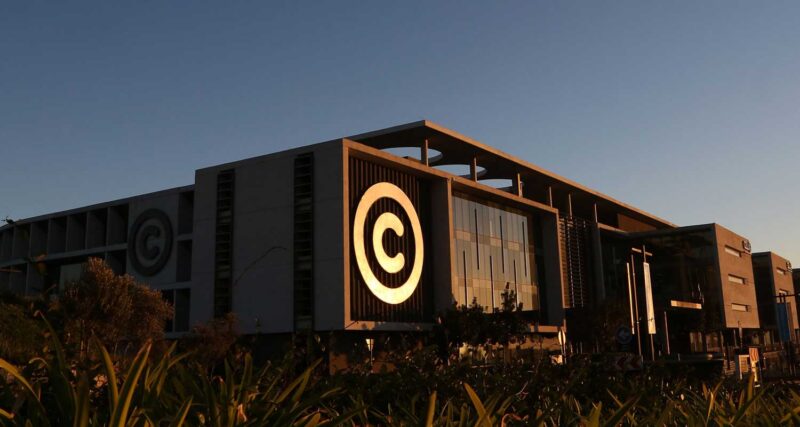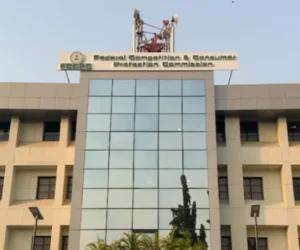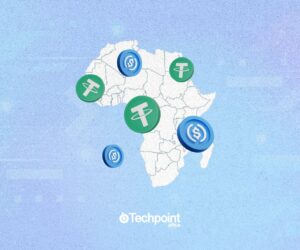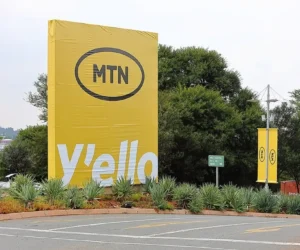Bonjour,
Victoria from Techpoint here,
Here’s what I’ve got for you today:
- Cell C slashes IPO valuation to R9 billion
- The Senegalese producer who built an AI for African artistes
- US company cuts Liquid Intelligent Technologies again as debt risks mount
Cell C slashes IPO valuation to R9 billion
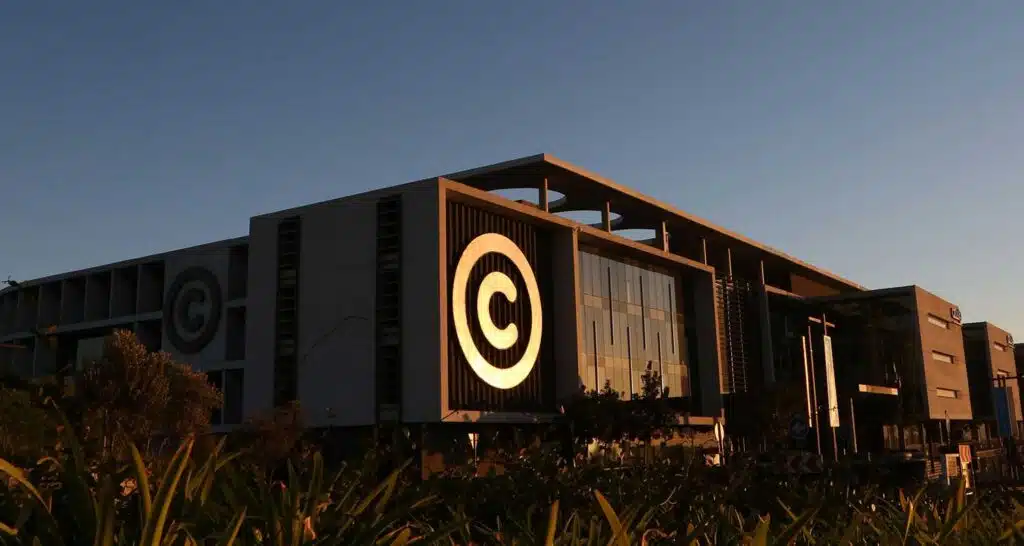

Cell C has officially priced its IPO at R26.50 per share, coming in several rand lower than the initial range it pitched to investors. The reduced pricing immediately trims the company’s expected valuation to about R9 billion, meaning Cell C is walking into the Johannesburg Stock Exchange (JSE) with over R3 billion less than it once hoped to raise at the top end of its plans.
The telco announced the final price on Friday via the JSE News Service, explaining that its major shareholder, Blue Label Unlimited, approved the new number after the bookbuild process. The offer also sees some changes: the company no longer plans to overallot shares as originally intended, though up to 68 million shares will still go towards a new empowerment ownership structure valued at around R2.4 billion.
A big chunk of the money raised will go towards paying off debt, interest-bearing borrowings and other obligations that have long weighed Cell C down. Blue Label also noted that a portion will fund dividends, signalling its intent to return value to shareholders even as the telco works on stabilising its balance sheet.
But not everyone is convinced the listing will spark fresh growth. Several analysts, per Daily Investor, say Cell C enters a brutally competitive mobile market where MTN, Vodacom, Telkom, Rain, and others are already fighting over price-sensitive customers. Concerns also linger about Cell C’s dependence on MTN and Vodacom’s infrastructure, a factor that squeezes margins and limits control.
Still, there are optimists. Some investors say the listing offers a chance for a proper turnaround, especially with Cell C’s MVNO strategy quietly performing in the background, with Capitec’s mobile rollout being a strong example.
The Senegalese producer who built an AI for African artistes


Boubacar Djiba’s journey into music tech didn’t start in a studio. It started in his living room, on a computer his father brought home long before most families in their Dakar neighbourhood had even seen one. That early access to technology set him on a path that would eventually lead to Senmixmaster, one of Senegal’s most promising AI-powered audio platforms.
As a kid, Djiba wasn’t just using computers; he was teaching his friends, repairing broken parts, installing operating systems and pulling apart software just to see how it worked. That curiosity matured into skills in web development, graphic design and full-blown exploration of how technology could transform creativity. Senegal’s fast-growing AI ecosystem only deepened this interest, showing him what was possible when machine learning meets music.
Music itself had always been in the picture. FL Studio experiments in school turned into producing for classmates, then artistes, then an international breakthrough. With help from friends, YouTube tutorials and digital courses, he sharpened his craft until his work landed on Black M’s chart-topping track “Skyfall,” making him one of the first Senegalese producers to secure such a placement.
That success opened new doors. Djiba launched his own independent label, Vazy Music, where he managed producers and developed rising talent across Senegal. But he also started to see a bigger challenge: thousands of African artistes lacked access to high-quality sound engineering, studio resources, or mastering expertise, and that gap was holding back the continent’s sonic potential.
After six years of research and collaboration, he built Senmixmaster, an AI-powered mastering platform designed specifically to solve that problem and make professional-quality sound accessible to more African creators. For more on how Senmixmaster was born, and the tech behind it, read Delight’s latest on After Hours.
Liquid struggles to raise cash ahead of major repayments


Pan-African fibre company Liquid Intelligent Technologies is in even deeper financial trouble than many expected after Moody’s Investor Services, a US-based company that provides data, intelligence and analytical tools, issued another downgrade. This time, pushing the company from Caa1 to Caa2, a level that signals very high credit risk. It’s the second major cut in less than 18 months and a clear warning that the company may struggle to meet its looming debt deadlines in 2026.
Per MyBroadband, Moody’s says the downgrade reflects growing doubts about Liquid’s ability to refinance two major repayments coming due next year: a R2.27 billion rand-denominated loan in February and a massive $620 million bond in September. And while Liquid still has a strong fibre footprint across more than 20 African countries, the agency argues that the company’s debt pile is simply too high for comfort, especially in a high-interest-rate environment where new borrowing will be far more expensive.
The company has been trying to clean up its balance sheet for two years, selling assets and pulling in fresh equity, but progress has been slow. Of the $185 million in equity it wants to raise, only $60 million has actually come through, and key asset sales in the wider Cassava group, Liquid’s parent company, are still stuck behind conditions that haven’t been met.
Its refinancing plan, including a tentative $220 million loan commitment, depends on Liquid securing even more equity, leaving the whole rescue plan hanging on tight timelines and outside approvals.
Moody’s also flagged a worrying trend: even with asset sales and restructuring, Liquid’s interest coverage ratio is expected to drop below 1x once higher interest rates kick in, meaning the company may struggle to pay interest from its operating cash flow. Liquid itself admitted in its recent results that a “material uncertainty” exists over its ability to continue operating if the refinancing plan doesn’t come together in time, a rare and serious warning for a company of its size.
For now, Liquid insists things are “progressing well,” but regulators, creditors and the market aren’t convinced. With debt deadlines approaching and key transactions still incomplete, the next few months will determine whether the pan-African fibre giant pulls off a turnaround or is forced into far more drastic options.
In case you missed it
What I’m watching
Opportunities
- FairMoney is hiring a Golang Backend Engineer. Apply here.
- M-KOPA is recruiting a Director of Product Design. Apply here.
- Standard Bank Group logo is hiring a Team Lead, Northwest 1 & 2. Apply here.
- We’re hosting a debate on AI in daily life. Join us to share your insights and perspectives.
- Techpoint Africa is creating a video series where people discuss and debate policies and current events. If you enjoy thoughtful conversations, fill out this form. Apply here.
- Are you building a startup can feel isolating, but with Equity Merchants CommunityConnect? You can network with fellow founders, experts, and investors, gaining valuable insights and exclusive resources to help you grow your business. Click here to join.
- Help us make Techpoint better for you! Your feedback shapes what comes next (your responses may potentially save my job. A bit dramatic, but still). It will only take 30 seconds to tell us what works and what doesn’t. Fill it here.
- To pitch your startup or product to a live audience, check out this link.
- Have any fresh products you’d like us to start selling? Check out this link here.
- Follow Techpoint Africa’s WhatsApp channel to stay on top of the latest trends and news in the African tech space here.
Have a productive week!
Victoria Fakiya for Techpoint Africa

